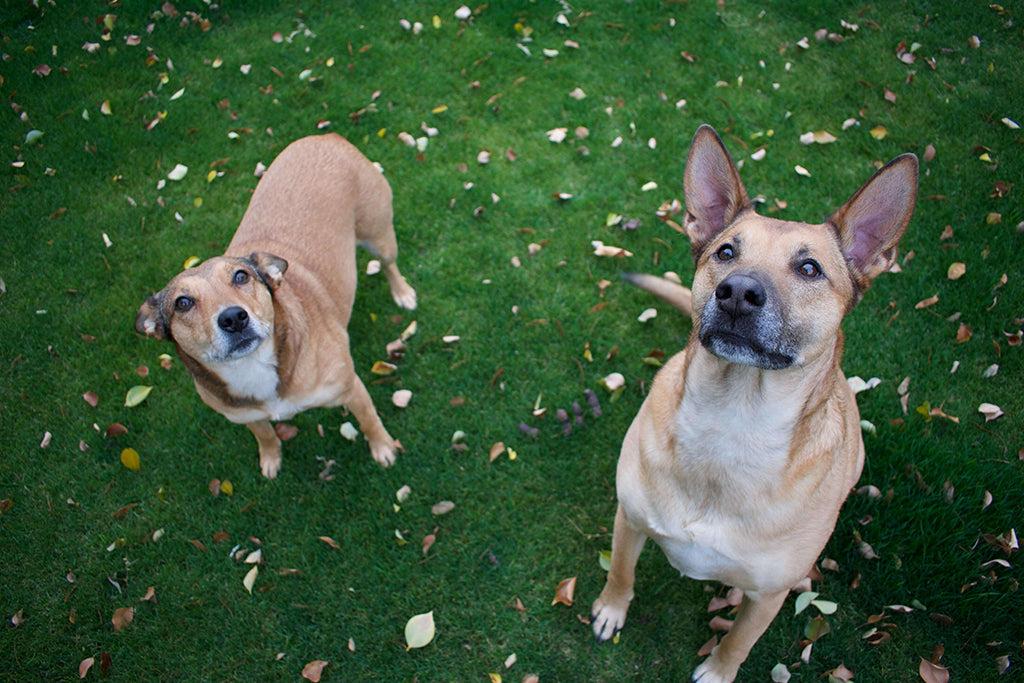“Should I get another dog?” In this blog, we learn when to get a second dog. We’ll help you weigh up whether the time is right and if you decide to go for it, the steps to take when introducing a second dog to the household.
Should I Get Another Dog?

So, you’re thinking about adopting a second dog. But, have you asked all the important questions you need to before committing to taking on another four-legged friend?
Should I Get A Second Dog?
First things first, if you’re considering getting a dog to help with the temperament of your existing dog who occasionally exhibits nervousness, hyperactivity or aggressiveness this is not a good case for getting another dog. The safety of your second dog should be a priority. Also, the likelihood of their behaviors being picked up by the following dog are high. It’s imperative you work on supporting your current dog’s behavioral balance before introducing another to your home.
In addition, if your child(ren) or partner is putting pressure on you to get an additional dog, but you’re not so sure, this is a sign you shouldn’t get one either and vice versa. Every household member should be fully on board and committed to their care, cost, and ethical training before they commit to getting a second pet. If someone is on the fence or sighing about the thought of doing puppy training all over again? Wait it out.

Things you should be sure of before committing to adopting a second dog include:
Your current dog is thoroughly trained and recognizes you as their master; If you have two young dogs in the house they may bond better with each other than you, which can make training them both even more of a challenge.
Your current pup isn’t too old; Ideally, your first dog should be 1-2 years old when you introduce another. Older dogs can struggle to accept a new dog in the home and two puppies can be too much of a handful!
Whether you realistically have the space, time, and money for two; Dogs can be expensive and demanding, particularly if your second is a puppy that needs training.
What the sex and breed of your current dog is; Some breeders suggest opposite sexes get along better as companions. Also, it’s sometimes advised to try and match breed energy levels. For example, a miniature dachshund and border collie may not make the best match in terms of exercise needs and play.

Introducing A Second Dog
If you’ve unanimously decided in your household that it’s time to bring another fur baby into your home, you’ll most likely be looking for some tips on introducing a second dog to your current pooch smoothly.
It may take a matter of days or a few weeks or months for your dogs to settle with each other. Until you’re confident the two are friends, make sure you are with them at all times and neutralize potential conflicts before they can happen. For example, feed them in separate bowls and remove the bowls immediately after meals so they can’t fight over left crumbs. Don’t give them toys to play with until you’re sure they are getting along either as the desire for the same toy can cause fights as well.
Be mindful that older dogs growl and snap at puppies to try and teach them boundaries and how to socialize. This is normal! But, try rewarding your first dog when the second dog is near them and they don’t snap or bark with praise or tasty treats.
Positive reinforcement can help encourage your first dog to accept the second as their new fur sibling. But, it would be naive to not expect the odd growl or snap if the younger dog is being overly persistent in play with your first dog and they need a break.
Alone time spent by you with both dogs is going to be important. You can use crates or pens to help ensure this happens. This can also help to give each dog a break from each other if they’re struggling to adapt or one has slightly more energy and enthusiasm toward play than the other.
Remember training a new dog takes time! If the process is taking a rather long time and they are consistently not getting along, it may be time to engage with a professional, ethical, and kind dog trainer or check in with your veterinarian for advice.
Do be patient with your first dog – this new four-legged family member was not their choice so make sure you give them the same love and attention as before as best you can and extend lots of kindness and praise their way.
Related reads:
Dog Custody: What To Do When Pet Owners Break Up
The Essential Guide to Fostering a Dog
Sources
Author Santo, Kathy “When Should You Get A Second Dog?” Apr 19. 2021, American Kennel Club https://www.akc.org/expert-advice/puppy-information/when-should-you-get-a-second-dog/
 S
S



